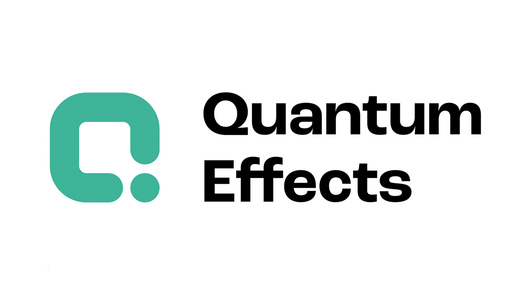High-Performance Computing Center Stuttgart

In October, academic researchers and industry representatives gathered at the Stuttgart Convention Center for Quantum Effects, an international exhibition and conference spotlighting the state of the art in quantum computing technologies. As a conference partner, the High-Performance Computing Center Stuttgart (HLRS) co-organized an international academic conference to explore opportunities and challenges at the intersection of quantum computing, high-performance computing (HPC), and artificial intelligence (AI).
Dennis Hoppe, who leads HLRS’s Department of Converged Computing, opened the conference by offering an overview of the center’s focus within the field, explaining, “HLRS is interested in quantum computing not as a silo, but specifically in how to integrate it with high-performance computing and artificial intelligence. We expect that the greatest benefits can be derived by understanding and exploiting the unique advantages of each of these technologies, and so our focus is on thinking about how to develop efficient workflows that leverage these strengths and integrate them in optimal ways.”
As Hoppe explained, combining QC, HPC, and AI in this way currently faces a number of challenges. At the level of hardware, infrastructure will be needed to minimize latency between quantum computers and classical high-performance computers via high-speed networks. At the software level, the field would benefit from a standardized, unified programming environment that would utilize containers, manage data efficiently, and effectively compile and efficiently schedule workloads across hybrid HPC/QC platforms. At the same time, benchmarking studies will be needed to eliminate algorithmic and data management bottlenecks and optimize scalability.
Many anticipate that quantum computing has the potential to outperform conventional CPU- and GPU-based binary computers in specific tasks. Classical HPC and AI will continue to have important roles to play, however. Hoppe pointed out that conventional high-performance computers, for example, will be essential for simulating QC systems and benchmarking quantum algorithms. In addition, quantum machine learning will rely on advances in the development of conventional artificial intelligence algorithms to develop new and faster methods. Comparing quantum and conventional approaches will also be important to understand whether and in which contexts quantum computers can offer unique advantages and capabilities.
At the HLRS-organized conference, academic researchers and representatives of companies involved in technology development for quantum computing looked at the convergence of quantum computing, HPC, and AI from a variety of angles. Speakers introduced QC hardware being developed, software for programming quantum systems, and policy-related issues that will affect the adoption of QC technologies. Quantum machine learning was also a central focus of the meeting, with talks focusing on benchmarking studies and challenges facing the interpretability of results. Several interactive workshops also offered opportunities for experts to exchange insights on quantum machine learning methods, QC policy strategy, and QC education and training for industry.
In a presentation that would be of particular interest for anyone having trouble understanding the complex landscape of competing quantum computing technologies, technology analyst Ingolf Wittmann also presented a useful summary of the key concepts and companies involved in the race to establish standard platforms for QC.
The conference program, including speakers’ slides, is available online.
More general information about Quantum Effects is available on the website of the Stuttgart Convention Center.
— Christopher Williams